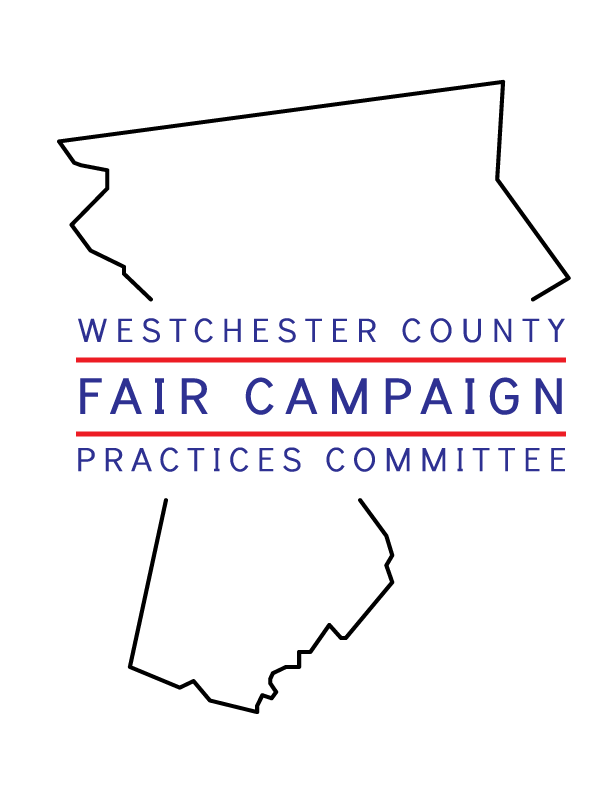We Hear Candidates' Complaints. We Ask the Public to Share our Findings and Promote Fair Campaigns
The Westchester County Fair Campaign Practices Committee expects our political candidates to conduct their races openly and fairly, to focus on issues and qualifications, to refrain from dishonest and defamatory attacks, and to avoid the use of campaign materials that distort the facts. The public deserves to have factual information in order to make informed decisions about candidates.
What citizens can do
"Like" @FairCampaignPractices on Facebook, follow @faircampaigns on X, and share our findings.
If a campaign claim seems untrue or misleading, contact the candidate to find out the source of the allegation. If the statement is untrue, voice your disapproval.
Spread the word. Tell your friends and post what you discovered on social media, making sure not to publicize the falsehoods. Do not restate the falsehood in a headline or tweet (see below).
Consider running for office and contact us for help in determining whether or not a practice is fair.
Make sure to vote.
Tips on posting about misleading and defamatory campaign claims
We must fight falsehoods with facts. But the more often a falsehood is repeated, the more believable it becomes. So how do we get the truth out without further defaming the victim?
In a Berkman Klein Center for Internet and Society article entitled, “How to Refute a Lie,” Judith Donath recommends that we
State the truth in the headline (or tweet), instead of repeating the falsehood.
Use vivid graphics that depict reality.
If the key point is that someone is lying — say that. Then state the truth. Don’t restate the lie in the headline.
So, for example, if a candidate’s literature claims that none of the opponent’s bills have ever passed in the legislature, our tweet or headline should read “6 of Legislator Abc’s Bills Signed into Law This Year,” not, “Claim that None of Legislator Abc's Bills Passed is False.”
Resources
Voting information, how to determine if campaign ads and social media claims are correct, and identifying AI generated content
League of Women Voters and Election Resources
League of Women Voters of Westchester Voter Information and Vote411
Westchester County Board of Elections
Fact Checkers and Ways to Identify AI Generated Misinformation
International Federation of Library Associations & Institutions
Infographic “How to Spot Fake News”
Factcheck.org
A project of The Annenberg Public Policy Center
Politifact.com
The Poynter Institute
Identifying and Counteracting AI Generated Misinformation
MIT Media Lab Project, Detect Deep Fakes: How to counteract misinformation created by AI
Santa Fe Community College
Misinformation and Media Literacy: How To Spot AI-Generated Content
Google Jigsaw
Prebunking to preemp online manipulation
Please note that the inclusion of a resource does not indicate that the FCPC endorses all the opinions of the organization or author. This also applies to all other references on this site and our social media posts.




